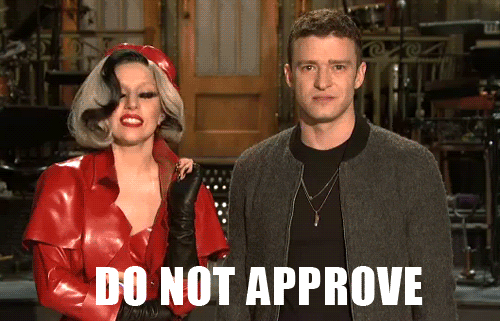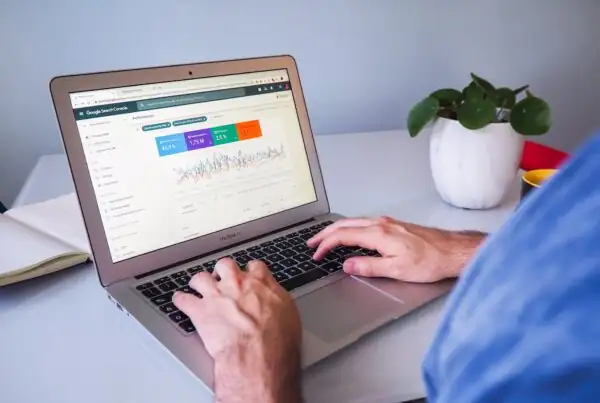As an agency that provides a comprehensive international SEO service, which includes link building, we get asked by publishers and bloggers to pay for backlinks all the time.
Even today, after all the warnings that Google has given about paid links, far more publishers and bloggers demand payment than not.
Here’s why we always politely refuse.
tl;dr
- We get asked to pay for links on a regular basis
- Publishers risk penalties and bans by accepting payment for links
- Google is better at detecting paid links than you may think
- In the real world, journalists get paid by publishers to write
- But bloggers need to earn a living somehow!
10 ways your site is being endangered by cowboy link building agencies
A familiar situation
This is the gist of a typical conversation we have with bloggers and publishers on a regular basis:
Us: We have some interesting research and original content that your readers will find useful. It includes data from our client.
Publisher: That sounds great, please do send it across! I’ll review it and if it’s good enough.
Us: The article’s been emailed over, along with some additional research and supporting images. Please could you send us a link once the article is live?
Publisher: I’ve published it, but I have removed all the external links. If you want a link, you must pay $150.
Us:
Why paid links are bad for you, the publisher
Publishers that accept payment to advertise a brand have a legal duty to declare such advertisements. This isn’t something new. It’s a legal requirement that pre-dates Google, both in the USA and the UK.
The Advertising Standards Authority is also aware that a lot of bloggers seem to think they are exempt from these rules. They therefore went ahead and published this post that talks explicitly about the need for online media to fully disclose paid content, especially reviews.
Moving on from the fact that a blogger or publisher who doesn’t declare a paid link as such is breaking the law, the bigger problem (oddly) these publishers face comes from Google.
Google’s guidelines state that any links that are paid for should include a “nofollow” attribute. By allowing advertisers to pay for search-friendly links, all publishers risk incurring an algorithmic penalty, which could mean a disastrous loss of site traffic.
How Google finds out you’re soliciting payment for links
Google’s renowned head of link spam, Matt Cutts, released a video in March 2014 explaining what his team considers to be “paid links” and hinting at ways they might detect such payment.
As Matt Cutts says in the video, it is quite a grey area defining and uncovering paid links. But whenever there has been some kind of money exchange, this sends a very clear message to Google that the link is not organic, since the webmaster would not have chosen to link to said website were there not some kind of extra compensation provided.
While Cutts doesn’t go into much detail on how his team actually detects paid links, here are some of the methods they use:
- Competitors – A very easy way for competing bloggers and publishers to push a successful site down is to report that site’s paid link activities to Google. Reporting paid links is very easy:
www.google.com/webmasters/tools/paidlinks. - History – Websites that have been historically known to pay for or accept payment for links automatically come under closer scrutiny. This also means that publishers who link to brands that historically paid for links are likely to be scrutinised more closely.
- Uniformity – Paid links tend to start taking on a degree of uniformity, especially when acquired in large volumes in a short period of time. While most publishers don’t have the web-wide view to be able to detect these patterns, Google does, and it most likely uses this knowledge to algorithmically identify link spam.
- Fishing – Not everyone who approaches a publisher asking for links in exchange for compensation is a real buyer. Manual reviewers have been known to patrol organic search listings, and it doesn’t take much for manual and automatic processes to be put in place to send out false link purchase requests in order to identify culprits.
- Lurking – Google employees have been known to lurk around venues where link transactions might happen, such as forums, link exchange and purchase networks and blog monetisation sites. While publishers try to be as careful as possible nowadays, there really is no way of knowing if the person you’re dealing with isn’t actually a Google anti-spam team member.
Why paid links are bad for us, the content producer
The content we produce is organic and contains naturally placed links to both internal and external pages. These links attribute our sources, just like any good journalist and researcher would, but are never paid for and never will be. We understand that the quality of the content should always be enough to warrant a link.
A number of bloggers may argue that there’s no way Google could detect such a well-placed link was paid. But although the link may appear natural (good anchor text, high quality linking content) and as such could slip through the algorithm, Google does have a number of manual methods for detecting paid links, as described above.
Obviously, many sites are smart enough not to get caught for now, but Google is always getting smarter, and we simply prefer not to take the risk of getting penalised in the future.
But bloggers need to make a living
Paid links are one of the few ways for bloggers to make money, hence why many bloggers and publishers think it’s a shame that Google feels the need to penalise people who do this.
Banner advertising is always an option, and most popular sites use this legitimate method to earn money. But PPC and affiliate programmes generally offer diabolical terms for publishers, and often give awareness advertising away for free.
Publishers often say they value our content and appreciate the spike in traffic it usually generates, but can’t do it for free as it would be unfair to all their other contributors and clients.
This feels quite frustrating for bloggers and publishers of all sizes, as the internet is based on content, and yet the amateur bloggers who produce a vast amount of content cumulatively are not compensated for doing so.
They don’t have the means to recruit advertisers and charge the sort of fees a large publisher with a dedicated ad sales team might.
We understand the frustrations
We really do understand the frustrations of most bloggers and publishers – a number of our clients are in the publishing industry too!
What needs to be understood is that Google is trying to generate an economy where bloggers write purely out of their own passion and interest in their subject (rather than out of an intent to promote) as this usually results in the highest quality content. It is simply a shame that AdSense does not compensate bloggers adequately.
Our clients, more often than not, have the means to provide compensation, and might do so through completely separate advertising programs that place their brand and ads on publisher sites, with appropriate “nofollow” attributes and tracking redirects.
But we always advise against paying for editorial links on what is meant to be organic content – not just because our clients and the publishers could end up with a penalty, but because this violates the ASAs and our own code of ethics.
The journalists’ point of view
We asked one of our staff journalists, Sini Kaipainen, for her opinion on the matter. Here’s what she said:

“My aim here, as the content provider, is to deliver an article that informs the public and that readers will enjoy, like and share – any content I link to comes secondary.”
Thank you for your understanding.
About the Author
Farhad is the Group CEO of AccuraCast. With over 20 years of experience in digital, Farhad is one of the leading technical marketing experts in the world. His specialities include digital strategy, international business, product marketing, measurement, marketing with data, technical SEO, and growth analytics.










